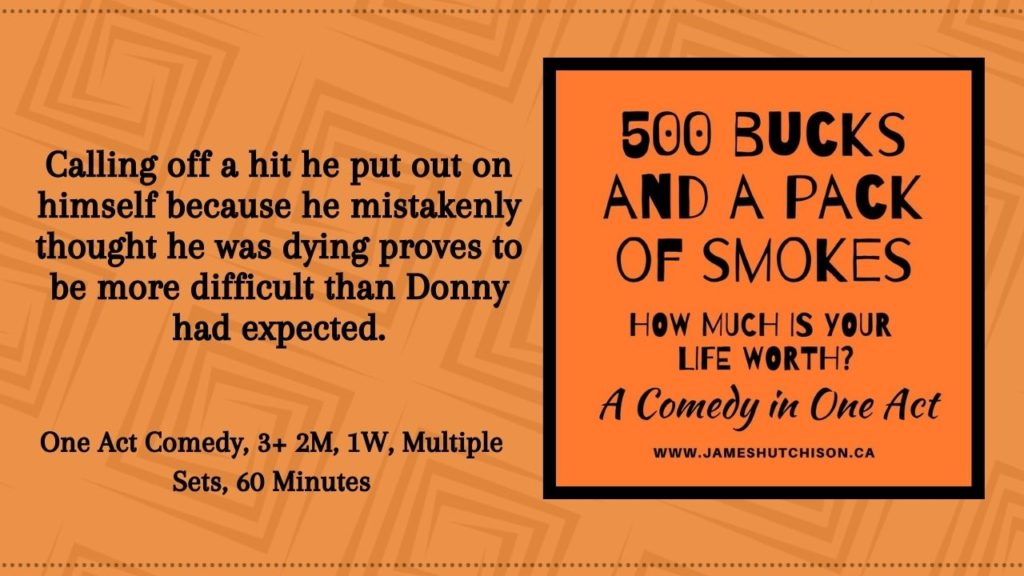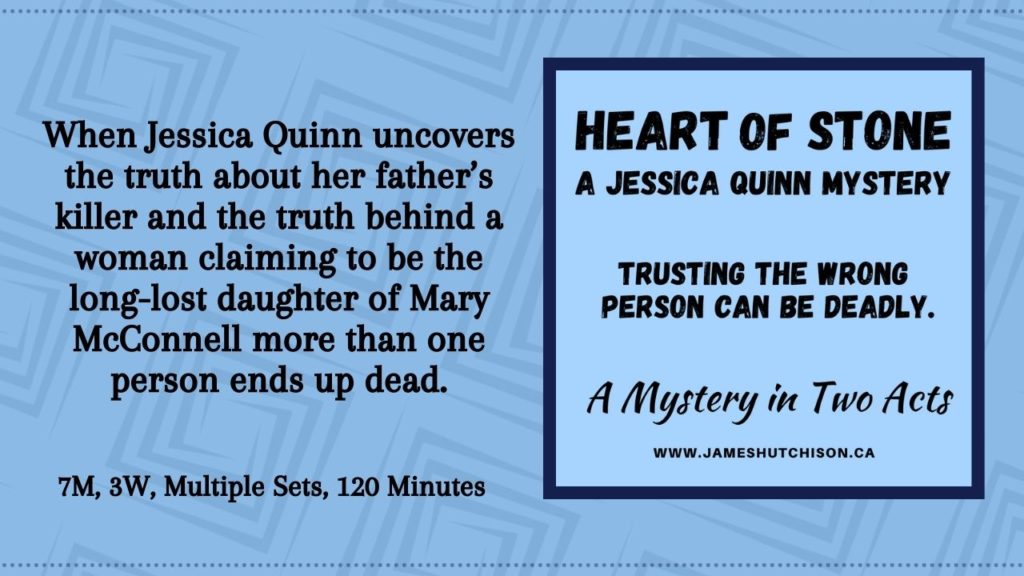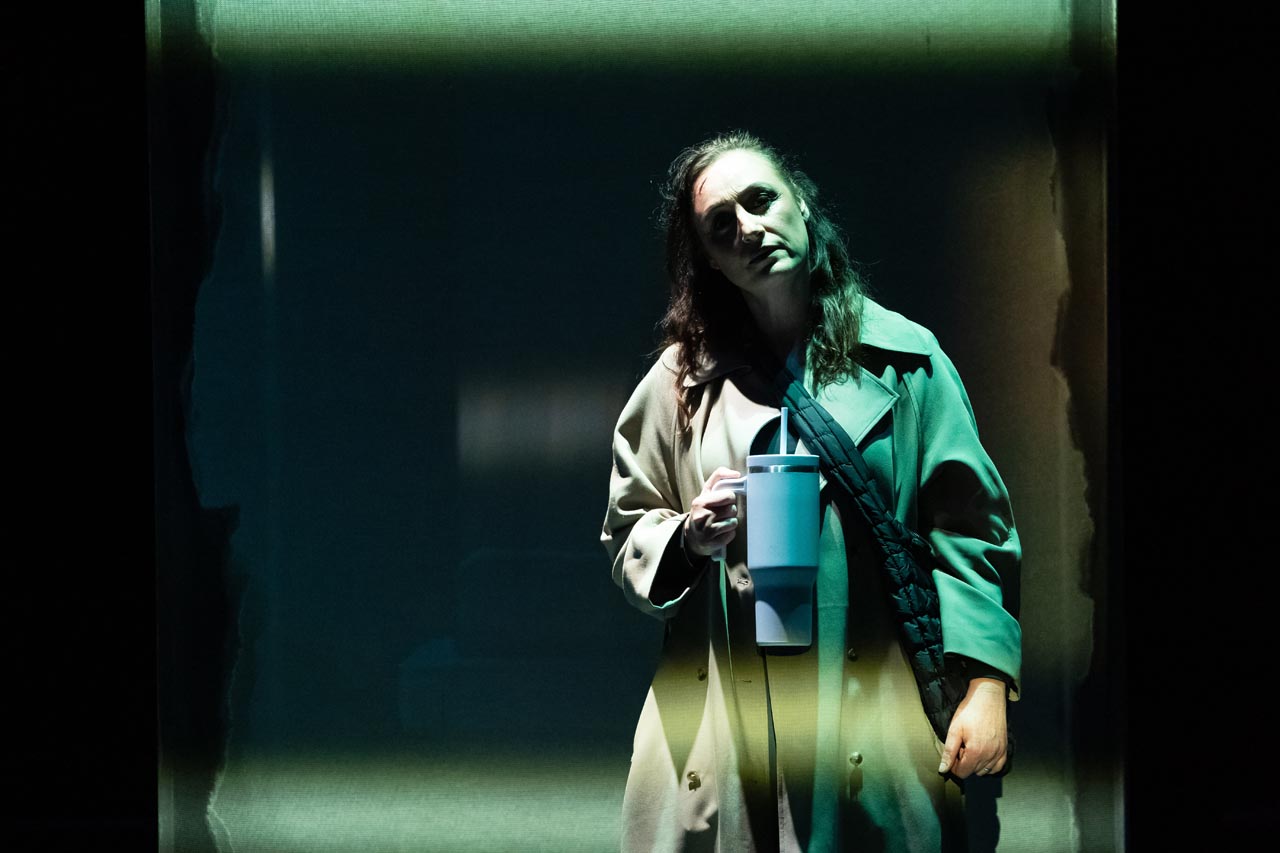
Rachel Watson wakes up one morning from a drunken blackout with a gash across her forehead, her hands covered in blood, and no memory of the night before. Adding to the mystery is the unexplained disappearance of Megan Hipwell a woman whose life Rachel has been obsessing over and observing as she travels by train to and from work every day.
Not content to let the police and Detective Inspector Gaskill handle things Rachel begins her own investigation into the mystery while she desperately tries to remember that night and figure out what happened. Add to the mix Megan’s husband Scott Hipwell and Megan’s therapist Kamal Abdic and then throw in Rachel’s own ex husband Tom Watson and his new wife Anna Watson and there are plenty of secrets to be revealed and several suspects to uncover in this exciting and tension-filled thriller.
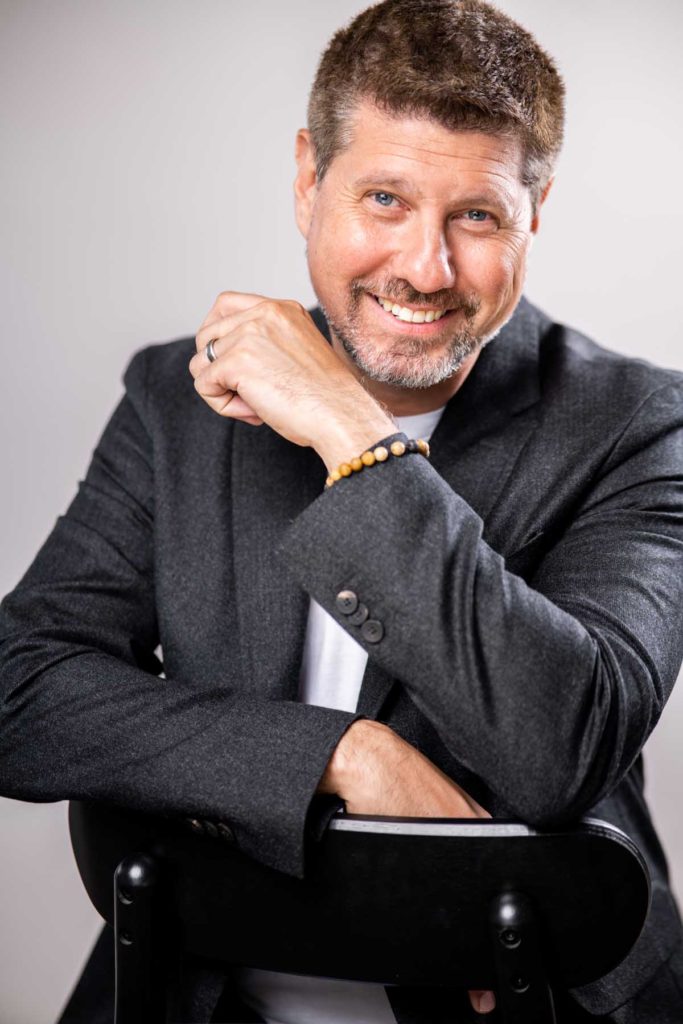
I sat down with Jack Grinhaus the Artistic Director of Vertigo Theatre and the director of The Girl on the Train to talk with him about the show, the importance of trust in the rehearsal hall, and what Vertigo Theatre has planned for their 2024/25 Theatre Season.
JAMES HUTCHISON
So, Jack, Vertigo Theatre is producing The Girl on the Train adapted for the stage by Rachel Wagstaff and Duncan Abel based on the best-selling novel by Paula Hawkins and the Dreamworks film which came out in 2016. How did this particular play land a spot in your season?
JACK GRINHAUS
It was a great book that I read and adored a number of years back and the play is written very much in the thriller mode – which I really enjoyed. I love the idea of a strong female lead. I love that there’s a truth about women in the world and how they are perceived. I thought the issues around alcoholism and memory were really intriguing subject matter to deal with. And the play is also highly entertaining and challenging because you’re trying to tell this story that’s flipping through different times and spaces. So, to me, it felt like a story audiences would get behind but it’s also the kind of work I’m interested in which is very much that fast-paced thriller that I think Vertigo’s been moving towards.
JAMES
You talked about the novel and the challenge always is how do you tell the story in a different medium. How does the play convey the story but still manage to capture the essence of the novel?
JACK
The novel takes the view of all three women. So, you have chapters from Anna, Megan, and Rachel and each chapter kind of overlaps. So, you’re seeing all three women through their own interpretation of their experiences whereas the play focuses on Rachel’s story and Megan and Anna’s stories are told through the eyes and the memory of the other people telling their version of events.
So, when Megan is confessing to having an affair to her husband Scott, she’s cruel and vicious and mean about it because of how he remembers it. He remembers it in that way and in this way, Megan becomes more of an enigma. There isn’t one version of Megan. We see four to five different versions of Megan. We see her how her therapist Kamal sees her. How Scott sees her. How Tom sees her. And how Rachel sees her as sort of this fantasy character.
Adaptations are really about finding a way to distill the book’s ethos into the play and finding a way so that the important tenants of the book and the story and characters are retained in a way that makes sure the book’s main thrust is still present and existing but in a format that is contracted and shrunk.
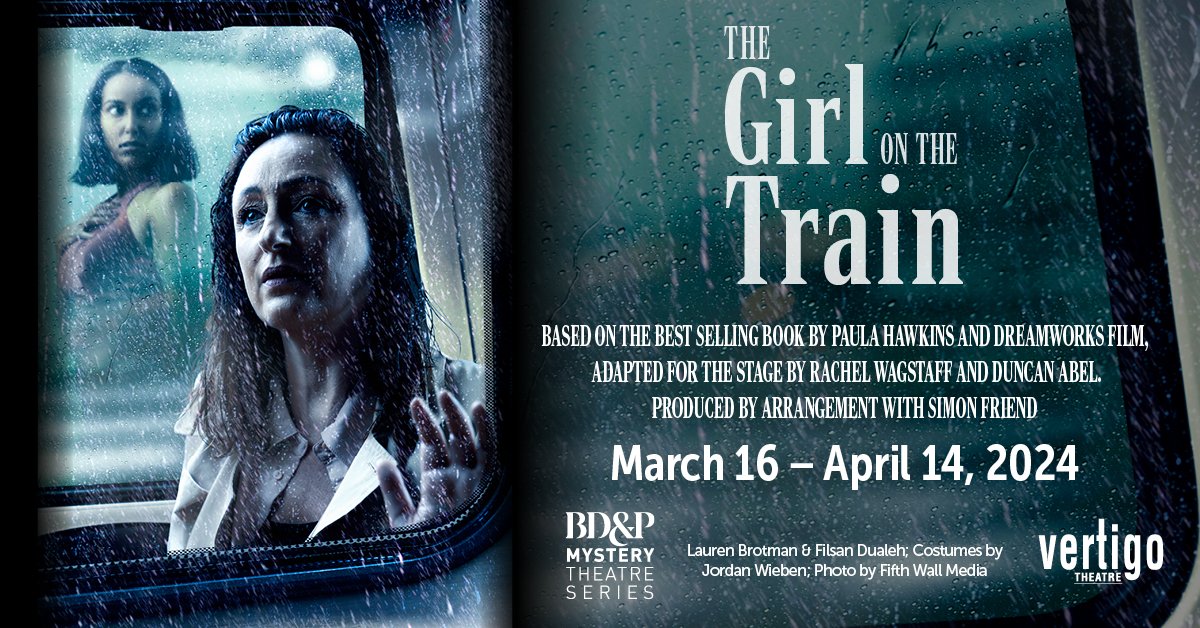
JAMES
The film boasts an outstanding cast including one of my favourite actors Emily Blunt who was up for an Oscar this year for her role in Oppenheimer. Your own cast that you’ve assembled for this production is outstanding with many Vertigo favourites bringing the story to life. You’ve got Lauren Brotman playing Rachel Watson, Filsan Dualeh playing Megan Hipwell, Tyrell Crews as Tom Watson, Stafford Perry as Scott Hipwell, Jamie Konchak as Detective Inspector Gaskill, Mike Tan as Kamal Abdic, and Anna Cummer as Anna Watson. Tell me a little bit about this cast and what qualities each actor brings to their roles.
JACK
Lauren who plays Rachel is my wife and we’ve worked together for a number of years and Lauren has an extraordinary facilitation with emotion. She’s able to capture emotion in multiple ways. She can go from screaming to laughing to crying in the span of a second or two. And she’s able to make the character of Rachel much more affable because the Rachel character if not done well can come across as this irritating self-absorbed narcissist who’s getting involved in something she shouldn’t get into. But because Lauren is capable of giving us a much more authentic and nuanced experience, she brings complexity and truth to Rachel.
When it comes to someone like Ty and Stafford, they’re both well-known in the community and they’re both strong male counterparts to Rachel. And in this story, they have the opportunity to support Rachel but they also both provide a bit of danger. Ty has played the bad guy a lot and he’s the sweetest guy so he can play a sweet guy but then flip that switch.
And Stafford is someone who feels almost like a little boy in a man’s body. And Scott is like that. He’s just this guy who gets thrown into this situation and he says, “You know five minutes ago I was just a guy with a mortgage and a wife and suddenly now I’m a circus attraction.” And he’s not good at that.
Anna Cummer who plays Anna in the play is so wonderfully idiosyncratic in the way that she prepares as a human and as an actor and as an artist. She’s a seasoned actor – a strong actor – who can give us that neurosis, jealousy, and fear that the Anna character has.
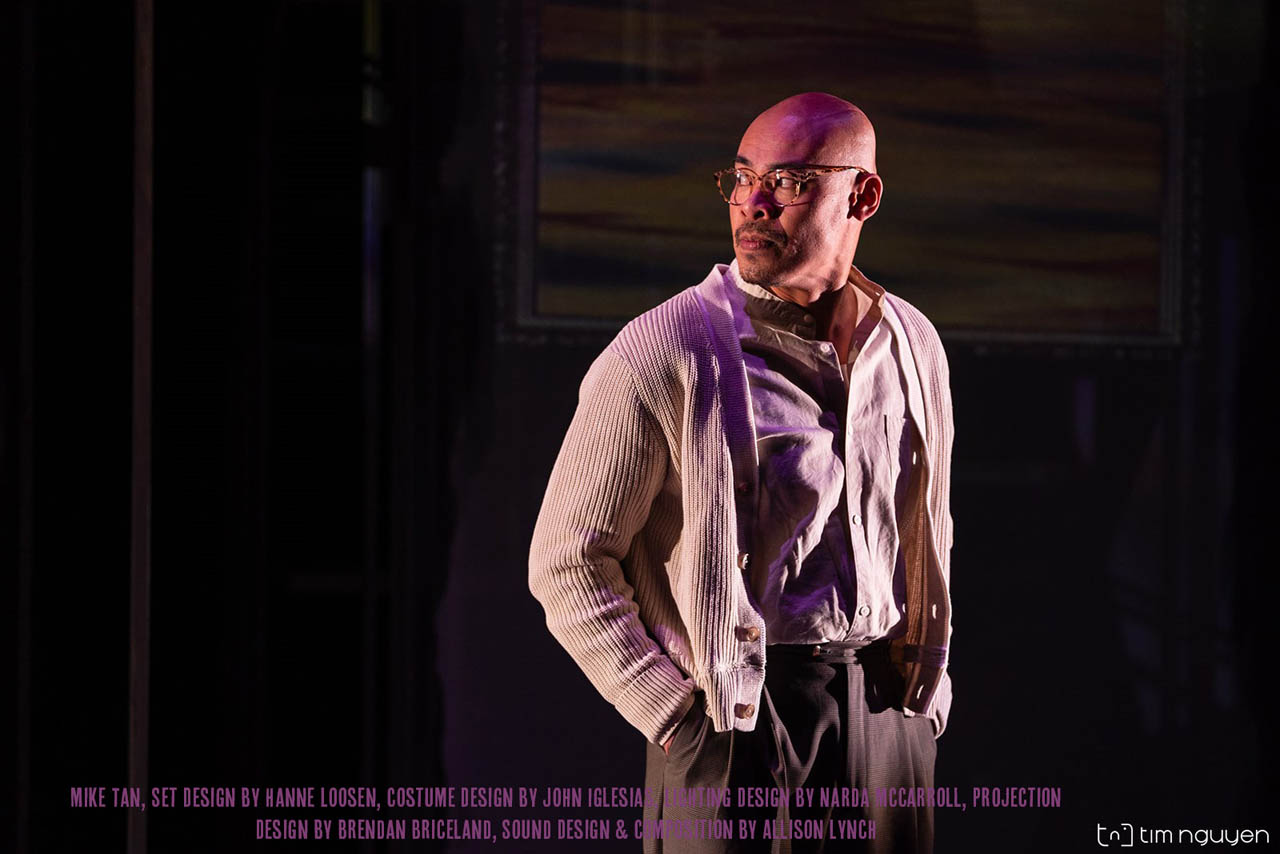
Jamie and Mike are just excellent rocks. You know whenever you cast a company of actors you need a couple of rocks in the company who hold down the fort because we have Rachel and Anna and Scott all emotionally up here so the key to an ensemble is to have two people that are emotionally down here.
And then Filsan brings this beautiful youth and enigma. She’s the youngest person in the company. The one with the newer experience in theatre comparative to the other actors who have maybe ten or fifteen years on her. So that innocence is kind of Meghan in a way, right?
So, they each have qualities that are really within the characterization and a lot of that came up in the audition process and right away we went, “Ah, you embody this character in this way as a person naturally.” And then as a group I needed really strong actors because of the nuanced performances necessary for it to be a believable piece of theatre.
JAMES
You mentioned that your wife Lauren is in the show and that you’ve worked with your wife over the years and I’m curious to know how do you enjoy that professional relationship and how do you maintain a successful personal relationship?
JACK
I don’t know how it is for other people, but we’ve just always been very similar on how the art is done. We can battle in the rehearsal hall, and I know that she’s going to try and do the best out of what she can get from the character, and she knows that I’m only going to try and get the best out of her. But at the end of the workday, we go home and leave it alone. And if someone starts talking about the work at home the other will say let’s wait for the rehearsal. And because I think we see art in the same way the end game is always the same and, in that way, it means we’ll never actually fight because we know we’re both trying to reach the same goal.
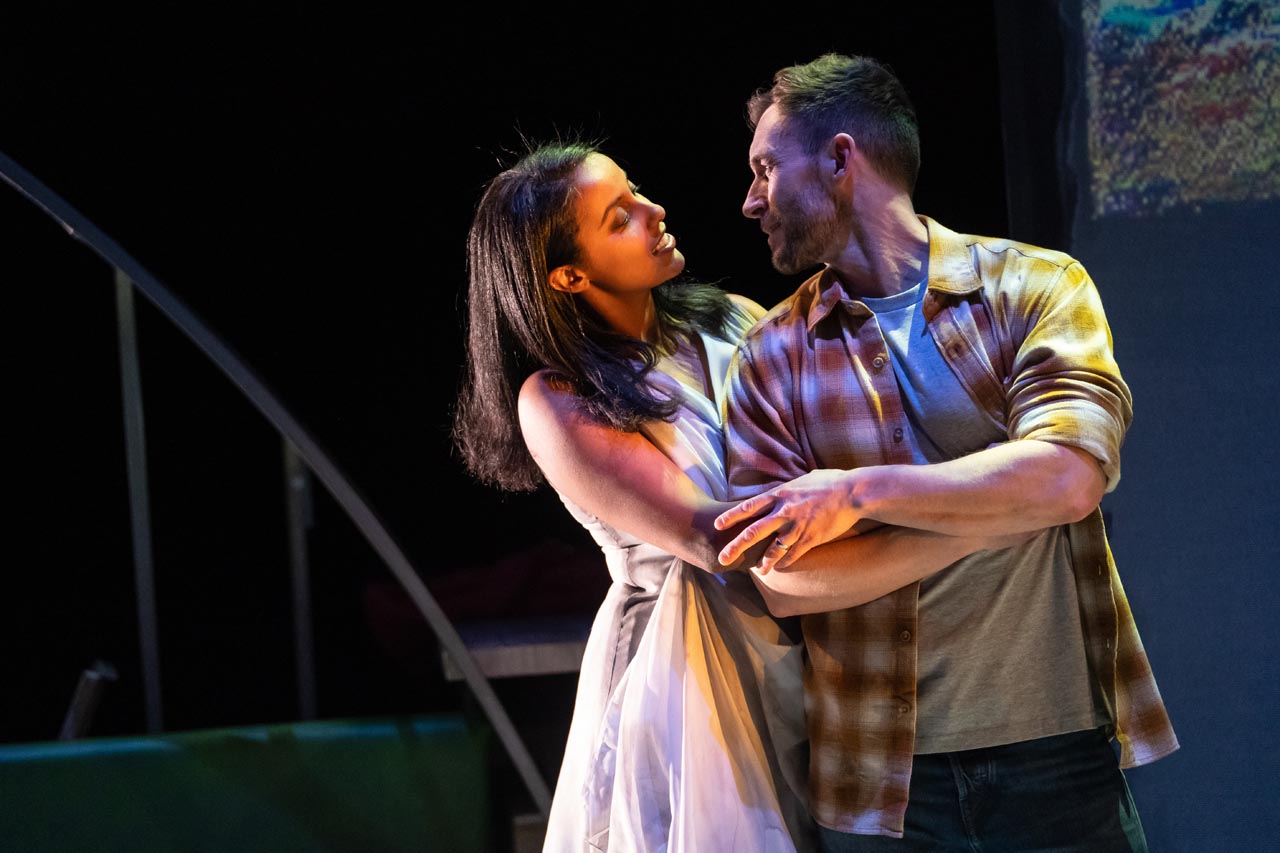
JAMES
From what you’re saying I’m taking that trust is a huge part of your relationship with your wife but let’s expand that out to talk about how important is trust in the rehearsal room and putting on a production.
JACK
It’s critical. I always say as a director I need to win the room in the first five minutes of the first rehearsal. Because if I don’t win the trust of that team – if they don’t believe that I can lead the ship – then I’m going to lose them and once you lose the room it’s very hard to get it back.
And so, I like to come in very well prepared and also come in with a great sensitivity to the understanding of the actor process and let them know that I’m strong and I’m here to support their journey. I’m happy to have discussions about things and if I’m curt or I cut you off it’s only because part of my job is about time management, and I have to keep things moving.
So, I’m very clear upfront about the rules of the game. People know I’m the leader of the team, but it doesn’t mean that your voice is not needed wanted or justified and if there’s time to have conversations we will. So, I’m really clear on my vision and the idea I have for the show so that they can buy in. And the key to building trust in that room is about supporting each other and giving them a place where they feel they can work safely.
JAMES
So, let’s say I have a friend this weekend who says I don’t know what to do and I say there’s Vertigo Theatre’s production The Girl on the Train. What should I tell them? Why should they go see it? What’s the hook?
JACK
I think it’s a gripping, exhilarating, crime thriller experience and we all love that storyline. And because you’re following this journey through the eyes of the unreliable narrator there are red herrings and that’s a bit of a puzzle and it’s also highly theatrical in its presentation. The writing and the acting are naturalistic, but the set and the projections are much more expressionistic and metaphoric, so I think it feels very epic in scope. So, if you want a really great experience, you can come out and have a drink and have a conversation with some of your friends and see something that is not only theatrical it’s cinematic in style and it’s a great thriller with great acting.
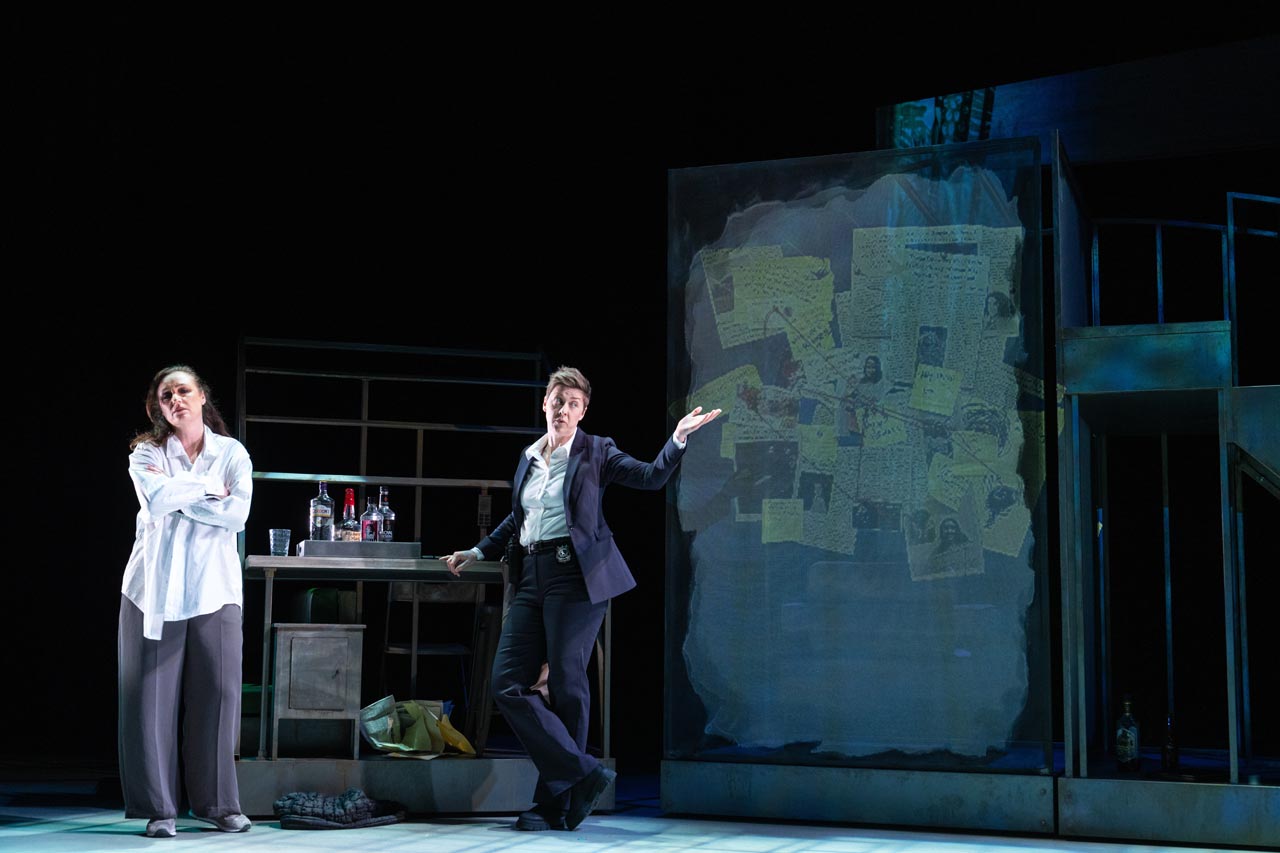
JAMES
Since you mentioned cinematic a couple of weeks ago the Oscars came out and I’ve seen a few awesome films that were nominated this year like American Fiction which just blew me away and The Holdovers which I loved. And on the weekend, I saw Past Lives and that devastated me. Which totally surprised me. But for me out of the films I’ve seen so far, I think the one I like best is The Holdovers. Did you have a favourite out of the films that you’ve seen and were nominated this year?
JACK
I loved Oppenheimer. I really did. I found myself really drawn to it. I mean I love Christopher Nolan the director and I love the work that he does. The performances weren’t necessarily very deep emotional experiences but I’m a big history buff and I love the storytelling and the way it was shot and even though it was a longer film it didn’t feel like it. It didn’t drag at any point for me. I was in it the whole time. I just wish I’d seen it in the movie theatre and not at home because it feels so epic and I would have loved to have been in the cinema for that one.
JAMES
I saw an interview with Jeffrey Wright who was in American Fiction, and he said when he’s making the work he doesn’t think about awards but afterwards awards bring recognition to the work and if they’re going to hand out awards anyway why not hand them out to him. And that made me laugh. So, I’m curious about your thoughts. We have the Betty’s coming up which are our local theatre awards. What are your thoughts about placing artists in competition with each other and that whole idea of awarding work?
JACK
There are many layers to that question. With film and TV when you win an award it can actually bolster awareness about the film and the work helping it to grow but usually a play is completed by the time it gets an award so I’ve always felt that awards are really valuable for young artists who are coming up and it can give them some stature. It’s kind of like good reviews. Those things can bolster grant writing potential and maybe even opportunities for work and so I’ve always thought awards are really great for young people.
I’m also curious about the idea that does a work of art only become great if it’s publicly lauded or can a work of art still be great even without that? You think of some of the greatest artists in history people hated for years and years and years and then suddenly twenty, thirty, fifty, a hundred years later their works are being lauded.
I think it’s valuable in it’s a way for communities to get together and to at least acknowledge each other and that’s great but we could also just have a big party at the end of the year – a big theatre party and have a nice dinner together and just celebrate each other in a way without necessarily having to say you’re the best of the best you know.
When Connie Chung was interviewing Marlon Brando she said, “You know you’re considered the greatest actor of all time.” And Brando said, “Why do we always have to deal with absolutes? Why does it always have to be somebody is the best? Somebody is the worst. Can’t you just attune yourself to a thing and be one of the people who does that.”
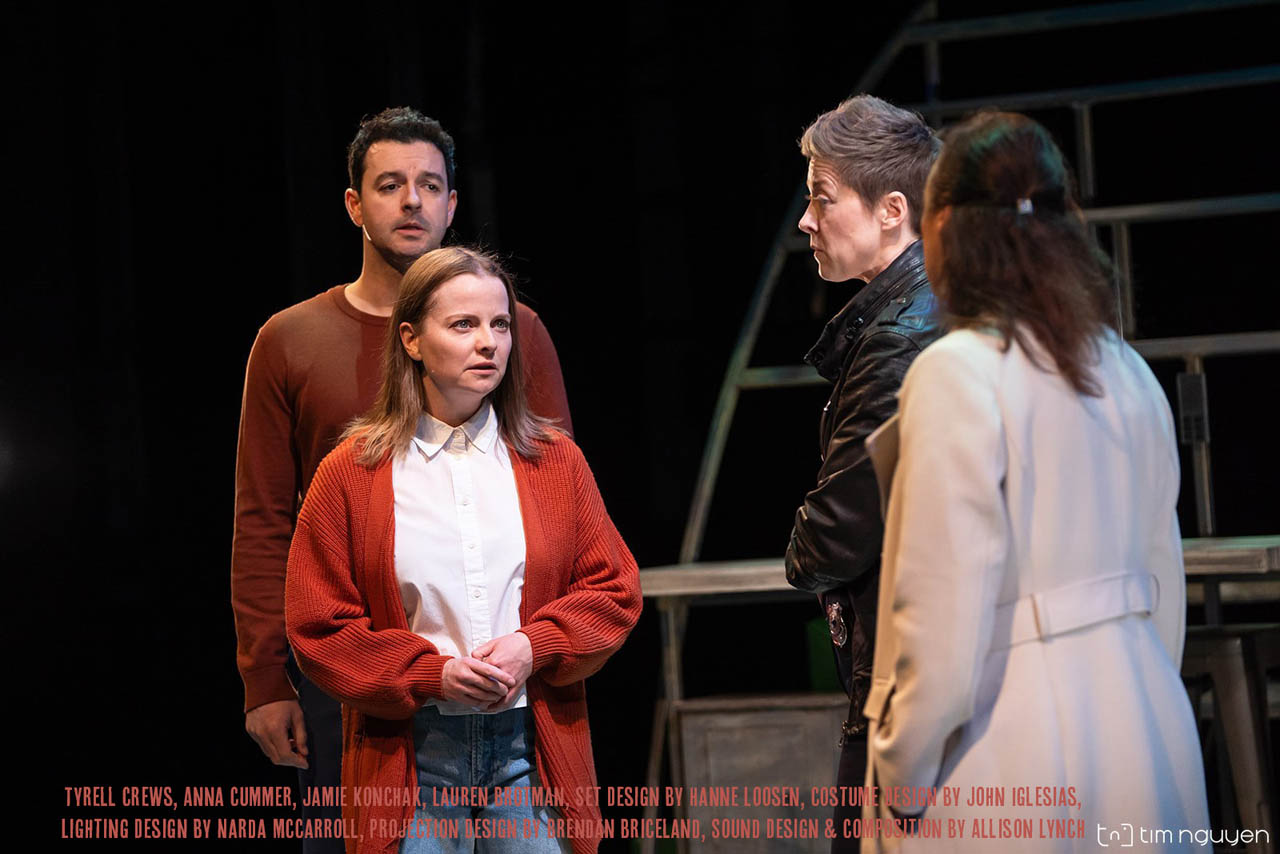
JAMES
So, last year you gave me a little sneak peak about next season, and I was wondering what do you have planned for the 2024/25 theatre season at Vertigo?
JACK
Well, it’s about turning the page and I always build seasons that are feeling the zeitgeist of the day in a way and trying to understand where we are. And I think even though people would argue the pandemic isn’t over we are certainly past the most fearful stage of it where we just didn’t know anything, and we were all just guessing. And I think we’re in a place now where we have a better understanding that helps us reflect on ourselves and look at that time and think about who we are today.
So, for me – turning the page – are stories about people who are doing exactly that. They’re reflecting on the past and figuring out what are we going to do now in the future. And so, all of the plays live in that ethos a bit. And we also want to provide opportunities for audiences to have a great time next year. It’s still a hard time in the real world so why not enjoy the entertainment that we can provide. And we’ve got four premieres this coming year. So, lots of new plays.
We start the season with The Woman in Black which is a ghost story and just closed in the UK after nearly thirty-five years and over 13,000 performances since 1989. And we were the first phone call to say can we have it because they kept it on moratorium for a number of years – not allowing anyone to produce it. And it’s about Arthur Kipps looking back on his past to try and understand what happened to his family. So, starting off with something like that around Halloween is lots of fun.
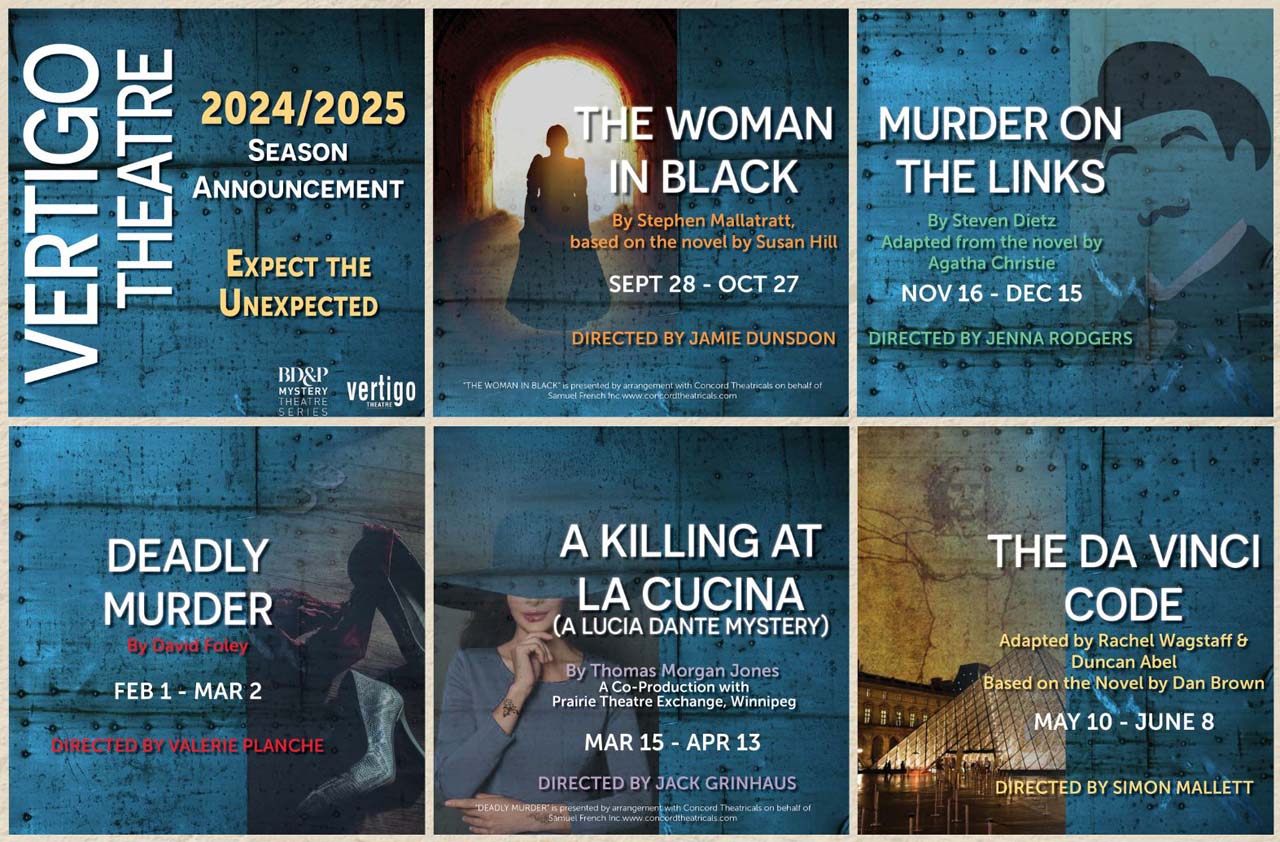
Then there’s the Canadian premiere of Murder on the Links which is a new version of a Christie Poirot – which everybody loves with six actors playing thirty roles. That’s exciting. It’s nostalgic with the way we love those chestnuts that time of year. It’s the holiday season. People want nostalgia. They want to look back a little bit and see those things and it’s a great story right.
We have the Canadian premiere of Deadly Murder. Deadly Murder is a dark deep psychological thriller. Very uncomfortable. Very cat and mouse. It’s that thing where you lock two or three people in a room and you see what happens. And it’s the old Hitchcock thing. It’s not scary to find out there’s a bomb in the room. It’s scary to find out there’s a bomb in the room that’s going off in five minutes and now what?
Then we have the world premiere of a new play called A Killing at La Cucina which is about a food critic who dies at a restaurant called Fate where one in a thousand people are fed poison and they go there because of that. And we’re introducing this new super detective who might very well be the next Poirot named Lucia Dante who investigates this fast-paced and intense mystery along with her AI colleague Isabella.
And we close the season with the Canadian premiere of The DaVinci Code which you know is nearing a hundred million copies in sale. It’s been about twenty-odd years since the book came out and I don’t think there’s a person who hasn’t at least heard of it. And I think that audiences are looking for things that they can recognize, and I think DaVinci Code is definitely one that is an exciting piece that is adapted by the same people who did The Girl on a Train, so it’s got that fast pace and that excitement in a treasure hunt adventure that goes all across Europe.
How are we going to do that?
We’re not going to have Europe all over the stage but that’s the beauty of theatre we’re going to use the set design and maybe the projections and the sound and the way that the lighting is set to create those environments where the audience goes – Yes you are in a Piazza in Milan. I see it. I see it all. Right. You’re in the Louvre. I totally take it we’re in Paris. So, I think those challenges – you know a big ten-person or eleven-person cast and a big show to crown the season – are the kinds of things Vertigo is excited about moving into.
***
